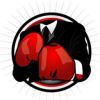9 Scriptwriting Books That Separate Experts from Amateurs
Industry pros Geoffrey Thorne, Lee Child, and Jessica Ellis recommend these essential Scriptwriting Books to elevate your craft and career.


What if the secret to writing a screenplay that actually sells isn't just about talent, but knowing where the industry is really headed? Scriptwriting is a craft that balances creativity with the mechanics of storytelling, and understanding this balance can mean the difference between a script gathering dust and one that lights up a studio exec’s desk.
Take Geoffrey Thorne, Co-Executive Producer of Magnum P.I., whose endorsement of Kill the Dog comes from firsthand experience navigating the writer’s room trenches. Or Lee Child, famed for his Jack Reacher novels, who praises the practical wisdom in Paul Guyot's approach. Meanwhile, filmmaker and writer Jessica Ellis highlights Scott Myers’ focus on character-driven storytelling as a game changer. These voices, among others, reveal how scriptwriting mastery requires both craft and industry savvy.
While these expert-curated books provide proven frameworks, readers seeking content tailored to their specific background, skill level, or scriptwriting goals might consider creating a personalized Scriptwriting book that builds on these insights and fits your unique journey.
Recommended by Geoffrey Thorne
Co-Executive Producer, Magnum P.I.
“Simply the best book on screenwriting ever written.”
Drawing from decades of hands-on experience in television and film, Paul Guyot wrote this book to cut through the myths that often mislead aspiring screenwriters. You gain an insider's perspective on what producers and studios truly want, how to craft compelling structure and voice, and why many screenplays fall short. For example, Guyot demystifies writer’s rooms and studio meetings, giving you a realistic look at the industry’s inner workings. If you’re serious about a professional screenwriting career, this book offers candid, no-frills guidance grounded in real-world practice.
Recommended by William Kelly
Academy Award-winning writer, Witness
“Whether you are a rank beginning who needs instruction or an old pro who needs reminding, you could not do better than Dave Trottier's book. A brilliant effort by a first-class, dedicated teacher.”
by David Trottier··You?
David Trottier's decades of experience as a produced screenwriter and respected script consultant culminate in this 7th edition, which offers a thorough roadmap for crafting and marketing scripts. You learn everything from the foundational mechanics of screenwriting and proper formatting to strategies for engaging readers within the critical first ten pages. The book’s blend of a primer, workbook, formatting guide, and sales manual makes it especially useful if you want concrete tools like sample query letters and worksheets at your fingertips. Whether you're polishing your first draft or refining your pitch, this guide lays out clear expectations and industry standards that can sharpen your approach.
by TailoredRead AI·
This personalized book on scriptwriting mastery is tailored to match your background and specific goals, focusing on the essentials you want to master. It explores the core elements of scriptwriting, from narrative structure and character development to dialogue crafting and formatting nuances. By addressing your unique interests, it reveals how to balance creativity with storytelling mechanics, helping you navigate the complexities of screenplay writing. The tailored approach enables a focused learning experience that bridges expert knowledge with your personal journey. You receive a customized pathway that examines both foundational concepts and advanced techniques, making the craft of scriptwriting accessible and engaging for your individual skill level and ambitions.
Recommended by Michael Goldberg
Founder of Knock Out Networking
“One of the best books I've read about how to breakdown a story into its individual moving parts. The Nutshell Technique teaches you how to weave your main character into your plot to create an emotionally rich script, allowing you to brilliantly craft your story without being by the numbers. A uniquely helpful resource.”
by Jill Chamberlain··You?
by Jill Chamberlain··You?
Jill Chamberlain, a seasoned script consultant and coach, wrote this book to address a common issue she observed: most first-time screenwriters focus on situations rather than crafting a compelling story. Through her Nutshell Technique, she identifies eight essential story elements that work together to create engaging screenplays. You’ll learn to transform raw ideas into emotionally resonant narratives by studying detailed examples from classics like Casablanca and modern hits like Juno. This method benefits aspiring screenwriters seeking clear structural guidance to elevate their storytelling beyond mere plot points.
Recommended by Bookauthority
“One of the best new Screenwriting books”
by Lovinder Gill··You?
While working as a screenwriting professor for over two decades, Lovinder Gill noticed a recurring struggle among his students: their scripts often stalled between pages 20 and 30. In response, he crafted this book to address the ten most common mistakes novice screenwriters make, such as confusing concept with story and prematurely choosing genre before developing the emotional arc. You’ll learn how to identify and fix these pitfalls, using clear explanations and memorable metaphors like the "cake-shaped icing" analogy. This book suits aspiring screenwriters eager to push past early roadblocks and build emotionally engaging screenplays that hold momentum beyond the opening act.
Recommended by BookAuthority
“One of the best Screenwriting books of all time”
by Geoffrey D. Calhoun··You?
What happens when a seasoned script consultant distills decades of experience into a concise guide? Geoffrey D. Calhoun, recognized for his award-winning thrillers and leadership at WeFixYourScript.com, delivers exactly that with this book. You gain access to sample-driven outlines and practical templates that clarify the screenwriting process from synopsis through subplots, making the craft approachable whether you’re writing your first screenplay or refreshing your skills. Chapters serve as actionable checkpoints, helping you break your story into manageable parts without getting bogged down in jargon. If you want straightforward tools to shape your screenplay and keep your writing focused, this guide is tailored for you, though those seeking deep theoretical analysis might look elsewhere.
by TailoredRead AI·
This tailored screenplay development book offers a unique 30-day plan designed to accelerate your scriptwriting journey by focusing on daily, actionable steps that match your background and goals. It explores the core elements of screenplay structure, character development, and story pacing while providing a personalized pathway through each critical phase of writing a script. By concentrating on your specific interests and skill level, this tailored guide reveals how to efficiently build a compelling narrative one step at a time, making the complex process approachable and engaging. The book also examines techniques to maintain momentum and refine your screenplay within a focused timeframe, ensuring your creative vision takes shape effectively.
What makes this book different from others is Roslyn Muir’s firsthand experience as an award-winning screenwriter whose TV movies have aired worldwide. She breaks down the lesser-known nine-act structure specific to TV movies, especially thrillers and rom-coms, giving you practical frameworks to shape your scripts. Beyond structure, you’ll gain insights into pitching and getting your work noticed by producers, enriched by interviews with industry screenwriters. Whether you’re starting out or refining your craft, this concise guide offers clear direction on mastering TV movie genres and navigating the industry’s unique demands.
Recommended by Matthias Hoene
Multi-award winning film director
“The Story-Type Method cuts through to the essence and guides you when you are lost.”
by Emmanuel Oberg··You?
When Emmanuel Oberg, a seasoned screenwriter with over 25 years in Film and TV, wrote this book, he aimed to solve the persistent problems that stall scripts in development. You’ll learn to diagnose issues like weak setups or sagging midpoints by getting to the root cause rather than just treating surface symptoms. This book guides you through 40 common screenwriting challenges with clarity—whether it’s making your protagonist matter or crafting a satisfying ending. It benefits experienced writers wrestling with rewrite notes, newcomers puzzled by rejection, and even producers or editors who want to communicate script issues more effectively.
Recommended by Jessica Ellis
Filmmaker and writer with industry insight
“Scott has one of the best analytical minds on the planet and his approach to writing is so compassionate and kind, you will absolutely benefit from this book, so pre-order it!” (from X)
by Scott Myers··You?
What happens when decades of Hollywood screenwriting experience meets character-driven storytelling? Scott Myers, a seasoned writer who’s penned projects for top studios and runs the acclaimed Black List blog, guides you through why character must lead plot development. You’ll learn how to shape stories around a protagonist’s transformation, using concepts like the "unity arc" and the influence of surrounding characters, with exercises that take you from concept to detailed scene outlines. This book suits anyone serious about screenwriting, from students to advanced writers, who want to deepen their grasp of story structure through character focus.
by Bob Saenz··You?
When Bob Saenz lays out the realities of screenwriting, he cuts through the usual fluff to reveal what truly goes on behind the scenes. Drawing from his experience crafting over a dozen produced screenplays for movies and TV, he shares candid insights into both the creative and business sides of the craft. You’ll learn how to navigate industry expectations, the importance of rewrites, and practical challenges that screenwriters face beyond just writing scripts. This book suits anyone serious about understanding how screenwriting works in the trenches—not just the theory but the often messy reality of making it happen in Hollywood.
Get Your Personal Scriptwriting Guide in 10 Minutes ✨
Stop following generic advice. Get targeted scriptwriting strategies that fit your needs without reading endless books.
Trusted by hundreds of scriptwriting enthusiasts and professionals
Conclusion
These nine books collectively highlight three essential themes: the importance of understanding industry realities, mastering story structure and character, and tackling practical challenges in writing and rewriting scripts. Each offers a distinct angle, from Paul Guyot’s candid insider perspective to Jill Chamberlain’s structural clarity and Emmanuel Oberg’s problem-solving techniques.
If you're facing the challenge of structuring your first screenplay, starting with The Nutshell Technique and The Guide for Every Screenwriter can provide a solid foundation. For rapid skill development, combine How to Write a Movie in 21 Days with Scriptcake Secrets to overcome early hurdles and maintain momentum. Writers aiming to break into TV should explore Writing a TV Movie alongside That's Not The Way It Works for craft and business insights.
Alternatively, you can create a personalized Scriptwriting book to bridge the gap between general principles and your specific situation. These books can help you accelerate your learning journey with expert-backed guidance tailored to your goals.
Frequently Asked Questions
I'm overwhelmed by choice – which book should I start with?
Start with The Nutshell Technique for clear story structure guidance, or Screenwriter's Bible if you want a detailed formatting and selling roadmap. Both provide solid foundations for beginners and intermediates alike.
Are these books too advanced for someone new to Scriptwriting?
No, many books like Scriptcake Secrets and Writing a TV Movie are designed to help novices overcome common pitfalls and learn practical skills from the ground up.
What's the best order to read these books?
Begin with story and structure-focused books like The Nutshell Technique, then move to formatting and industry guides such as Screenwriter’s Bible, and finally explore specialized topics like TV writing or script troubleshooting.
Do I really need to read all of these, or can I just pick one?
You can pick based on your needs: choose Kill the Dog for industry truths, The Protagonist’s Journey for character work, or The Screenwriter’s Troubleshooter if you’re rewriting. Each targets different challenges.
Which books focus more on theory vs. practical application?
The Protagonist's Journey leans more into theory with character-driven storytelling, while Scriptcake Secrets and The Screenwriter's Troubleshooter are hands-on guides addressing common writing problems.
How can I get scriptwriting advice tailored to my specific needs?
While these books offer expert insights, personalized content can bridge the gap between general advice and your unique goals. You might consider creating a personalized Scriptwriting book tailored to your background and focus areas.
📚 Love this book list?
Help fellow book lovers discover great books, share this curated list with others!
Related Articles You May Like
Explore more curated book recommendations








